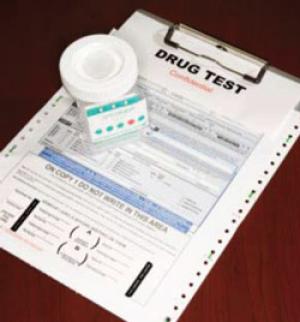Drug War Issues
Politics & Advocacy
Bills that would force welfare applicants and recipients to undergo drug testing are moving in the state legislatures in Austin and Topeka. In Austin, a Texas Senate committee approved a drug testing bill, while in Topeka, the Kansas House approved a bill that would require drug testing of both welfare and unemployment recipients.

The Kansas bill, Senate Bill 149, says that reasonable suspicion may be based on any number of factors, "including, but not limited to, an applicant's or recipient's demeanor, missed appointments and arrest or other police records, previous employment or application for employment in an occupation or industry that regularly conducts drug screening, termination from previous employment due to use of a controlled substance or controlled substance analog or prior drug screening records of the applicant or recipient indicating use of a controlled substance or controlled substance analog."
The bill would require anyone who fails a drug test to get drug treatment and jobs skills training at government expense. Those who fail a second time would be ineligible for benefits for a year. The bill also would prevent anyone who is convicted of a drug felony after July from getting welfare for five years. A second conviction would mean a lifelong ban. House and Senate members also would be tested if there is a reasonable suspicion about their behavior.
The bill passed the Senate at the beginning of March, but the House version contains some minor changes that will have to be reconciled before final passage.
The Texas bill, Senate Bill 11, was introduced by Sen. Jane Nelson, the Republican chair of the Senate Health and Human Services Committee, which approved it Tuesday. It would require applicants to the state's Temporary Assistance to Needy Families (TANF) program to be screened for drug use. Those who appear to be using drugs or who have a previous drug conviction would be subject to drug testing. Applicants who tested positive would loss TANF funds for a year.
"Drug abuse destroys families, harms children and prevents individuals from living healthy, independent lives," Nelson said in a press release on Tuesday. "Because TANF is a direct cash assistance program, we have a responsibility to ensure that these funds are not being used to support a person’s drug habit."
The bill has the support of Gov. Rick Perry (R) and Lt. Gov. David Dewhurst (R). "Texas taxpayers will not subsidize or tolerate illegal drug abuse," Perry said in a statement in November. "Every dollar that goes to someone who uses it inappropriately is a dollar that can’t go to a Texan who needs it for housing, child care or medicine."
This work by StoptheDrugWar.org is licensed under Creative Commons Attribution-ShareAlike 4.0 International
Comments
No Freedom for the Poor in Texas and Kansas
Leave it to the Texas and Kansas state governments to criminalize poverty, as if doing so will make it go away.
Based on standards so vague as to deny anyone welfare payments who might apply for them, Texas and Kansas are basing their exploitation of the poor on “reasonable suspicion”, as if anyone in the respective state legislatures knows what “reasonable” is. Suspicion is something they have in abundance, reaching levels normally associated with paranoia.
The intent of the Kansas and Texas legislatures violates the letter and spirit of the 14th Amendment’s equal protection of the laws clause. Senate Bill 149 essentially allows a poor person to use buy alcohol, but not illicit drugs far safer for their health, such as marijuana. The assumption that welfare recipients are more likely to use drugs than the general population is offset by the expense of drugs. The poor might be able to enjoy an occasional malt liquor, while the rich sip champagne and snort coke.
The U.S. already does everything possible to punish the poor. In doing so they believe they create the essential social tension believed necessary to make capitalism work. The exploitation of the poor in this way is more likely to make capitalism a target for revolutionaries.
No welfare drug testing
As a note, the state of Florida already tried this and found out that it's not only unconstitutional, it's not profitable as the state wasted $178 million to save $60,000 in benefits not paid.
You are right that the only ones that would profit from these invasive tests are those that own or have stock in these drug testing facilities.
The republicans operate on a platform of paranoia and fear of losing their influence and wealth when the very things that they support will have them as common as dinosaurs if they don't wake up and see that the world is an ever changing place. It can't be 1950 forever.
Add new comment